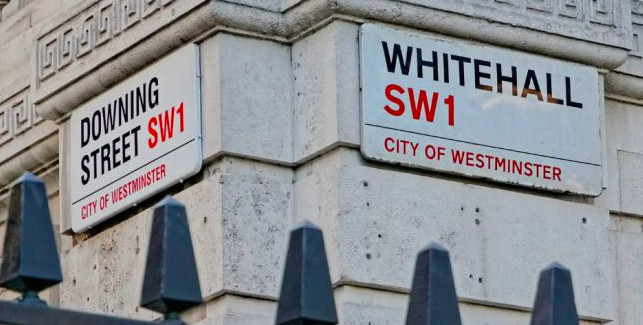The UK Gambling Commission (UKGC) has branded the financial year of 2022/2023 as “demanding but successful” for the regulatory body under the new leadership of Andrew Rhodes (Chief Executive) and Marcus Boyle (Chairman).

Publishing its 2022/2023 accounts, the Commission has revealed the economic and operational breadth of the British betting and gaming sector in 2022, but also the extent of enforcement actions.
Total UK gross gambling yield (GGY) between April 2021-March 2022 was up 11% to £14bn, generated by over 2,400 licensed gambling operators. On the other hand, the total GGY for the online sector dropped 6% to £6.4bn (£6bn).
The UKGC stated that these changes ‘show how the market has recovered from the impact of the COVID-19 pandemic’. The stats suggest that a reversal has occurred and some customers have been returning to the retail sector.
Providing an overview of the UK gambling sector gleaned from its research and statistics, the Commission revealed that overall participation in betting had increased to 44.4% (2021: 42.6%).
Confirming the paradigm shift regarding retail and online, web participation dropped from 25.3% to 26.9% whilst in-person wagering rose from 24.5% to 27.5%, showing that the bricks-and-mortar sector has shaken off the impact of 2020-2021 pandemic lockdowns.
Based on these participation stats, the UKGC estimates that around two-fifths of the UK adult population gamble regularly, amounting to 23.6 million, although this figure falls to £15.5 million when National Lottery players are excluded.
Online bettors stood at 14.3 million, 9.9 million when National Lottery players are excluded, and in-person punters at 14.6 million, again falling to 10.4 million when lottery players are exempt.
“Whilst the popularity of gambling in person has declined over time, retail remains a significant part of the sector and is showing signs of recovery following the pandemic,” Rhodes and Boyle remarked.
Given the debate around problem gambling and gambling-related harm which has proliferated throughout the Gambling Act review over the past three years, a question on the minds of many likely concerned the extent of this.
In its accounts, the UKGC again reiterated that problem gambling rate – as a percentage of the total UK adult population – is 0.3%, remaining ‘statistically stable’ as the year progressed.
According to the 2018 Public Health Survey for England, using the UKGC’s Problem Gambling Severity Index (PGSI), between 270,000 and 480,000 adults in England are classified as ‘moderate risk gamblers’.
Meanwhile, 160,000 to 340,00 were classified as problem gamblers. However, as this study was carried out in 2018 the figures for 2022 and 2023 may be different.
The leadership duo’s statement continued: “Against this backdrop of changing trends, our data shows that although the vast majority do not experience gambling-related harms, there are still significant numbers of people who do encounter issues with their gambling.
“The precise measurement of problem gambling and harms is complex and needs continual development, however, we do know that hundreds of thousands of gamblers are suffering negative consequences from their gambling.”
Enforcement activities during 2022/2023 saw the commission issue a 24 regulatory actions which amassed “£60.1m in enforcement fines and regulatory settlements” (£20.9 million in fines and £39.2 million in regulatory settlements).
“We made clear in 2021 that we would take escalating measures against recidivist behaviour and that is exactly what we have done,” cited UKGC’s leadership team.
“We took enforcement action against a total of 24 operators this past year, for breaching our regulatory requirements, but we saw many more working closely with us, as part of our improvement activities, to make themselves compliant.”
The Commission report highlighted record financial penalties issued against William Hill for £19.2m and Entain Plc for £17m ”for social responsibility and anti-money laundering failures.”
Monitoring UK gambling activities, the Commission’s Sports Betting Intelligence Unit received 511 enquiries, and produced 2,733 intelligence reports of which 223 were escalated to Incident Referral Form’s (IRFs).
2022/2023 detailed a rise in income generated from licensing fees and other sources to £26m, up from the £20m collected in 2021/2022. Operating income did not include the £22.5m generated from GIA funding for the National Lottery.
The majority of the Commission’s income was generated by operators’ annual licence fees of £22m, followed by application fees totalling £2m as overall, the Commission confirmed that it processed 150 operator licences and 1,900 personal licences.
The Commission’s operational costs (including depreciation) totalled £41m, reflecting a £4m decrease on 2021/2022 expenditure of £45m.
A breakdown of operating costs saw the UKGC attribute £19.3m to monitoring the UK gambling sector excluding National Lottery functions.
Year costs saw the Commission set aside £21.50m on National Lottery functions which included a £19m fee to deliver the Fourth Licence Competition.
The UKGC employee costs totalled £19m, of which £14m was reserved for its gambling unit and £5m for National Lottery regulation, including an additional £3m related to the National Lottery Fourth licence competition.
Consultations on the White Paper’s numerous proposals to amend the 2005 Gambling Act review are now underway, and as UK betting prepares itself for the finalisation of regulatory reform the UKGC has outlined five of its own objectives.
These are protecting children and vulnerable people from harm, fostering a fairer market with more informed consumers, keeping gambling crime-free, optimising the National Lottery’s return to good causes, and improving regulation.
Under the review, the operational and enforcement scope of the UKGC is set to be expanded. This in turn has seen the UKGC enlarge its teams, with 132 posts filled across its operations in 2022.
Related to HR, the regulator also reported a 10% increase in staff engagement, 35% decrease in staff turnover and received two employment awards – one for UK’s best workplace and one ‘Great Place to Work’ accreditation. Of significance, the Commission cited its reduced staff turnover, in a period a high turnover for other UK public sector bodies.
Concluding their joint statement, Rhodes and Boyle said: “We face one of the busiest milestone years in the Commission’s history as we push to consult on, and implement, the key actions from the Government’s Gambling Act Review White Paper.
“That will need everyone in the industry working closely and to one common goal – to make Great Britain’s hugely innovative gambling sector the safest and fairest it can be.”










